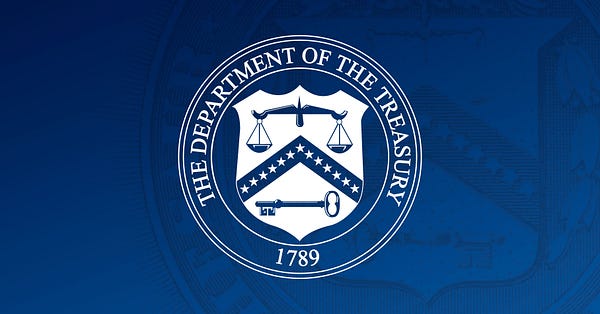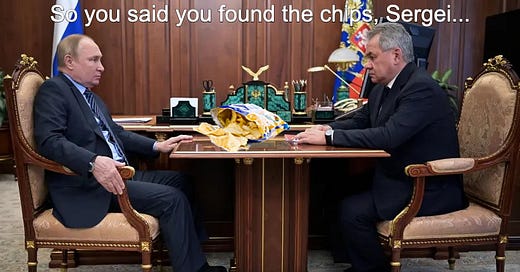Nov 22- Secondary Sanctions- What are they?
By Eddie Fishman- published November 16, 2022
A thread by Eddie Fishman: What are secondary sanctions and why are they important?
In the last few months, the US Treasury has signaled it would ramp up enforcement of secondary sanctions on foreign companies providing support to Russia's military-industrial complex. This week, we've gotten a clearer picture of what that means.
First, a definition: Secondary sanctions involve the US imposing penalties on foreign firms that support targets of US sanctions—eg, if the US were to sanction a Chinese firm that provided material support to a sanctioned Russian defense company, that's a secondary sanction.


Then the US Treasury took action. On September 30, it sanctioned a procurement network that was helping Russia source components for it defense sector. Of particular note, a Chinese and an Armenian firm were both sanctioned.
Today, the U.S. Department of the Treasury’s Office of Foreign Assets Control (OFAC) designated 14 persons in Russia’s military-industrial complex, including two international suppliers, three key leaders of Russia’s financial infrastructure, immediate family members of some of senior Russian officials, and 278 members of Russia’s legislature for enabling Russia’s sham referenda and attempt to annex sovereign Ukrainian territory. In addition, OFAC issued new guidance that warns of the heightened sanctions risk that international actors outside of Russia would face for providing political or economic support to Russia as a result of its illegal attempts to change the status of Ukrainian territory.
Lest OFAC's posture be unclear, they spelled it out plainly in October. "Q: Do non-U.S. companies risk exposure to sanctions for providing ammunition or other military goods to Russia or for supporting Russia’s military-industrial complex? | A: Yes."
Multiple Russia-related sanctions authorities authorize sanctions against non-U.S. persons that provide goods, services, or other support for Russia’s military-industrial complex. For example, OFAC may block any person determined to operate or have operated in the defense and related materiel sector of the Russian Federation economy pursuant to Executive Order (E.O.) 14024 of April 15, 2021, “Blocking Property With Respect To Specified Harmful Foreign Activities of the Government of the Russian Federation.”
This week, the US Treasury acted again. On Monday, it sanctioned a broad network that was helping Russia source microelectronics for its defense sector. Among the targets were firms based in Switzerland, Taiwan, and Armenia, and several Swiss nationals.
Today, the U.S. Department of the Treasury’s Office of Foreign Assets Control (OFAC), alongside the U.S. Department of State, sanctioned a transnational network procuring technology that supports the Russian military-industrial complex. OFAC also designated a global network of financial facilitators, enablers, and others associated with two key Kremlin-linked elites whose fortunes are intertwined with the West. In total, today’s actions designated 14 individuals and 28 entities, and identified eight aircraft as blocked property.
On Tuesday, the US Treasury was at it again. It sanctioned Shahed Aviation, the Iranian firm that designs the drones Russia is using in Ukraine, as well as a slew of associated individuals and companies. (The EU sanctioned Shahed Aviation last month.)
Today, the U.S. Department of the Treasury’s Office of Foreign Assets Control (OFAC) is sanctioning firms involved in the production or ongoing transfer to Russia of Iranian unmanned aerial vehicles (UAVs), which Russia has used in devastating attacks against civilian infrastructure in Ukraine. OFAC is designating Shahed Aviation Industries Research Center, the firm responsible for the design and production of Shahed-series UAVs being used by Russian forces in Ukraine. OFAC is also targeting Success Aviation Services FZC and i Jet Global DMCC for facilitating the transfer of Iranian UAVs to Russia.
None of the targets have been big fish, but the trend is clear: the US is serious about enforcing secondary sanctions on those who support Russia's military-industrial complex. The US Treasury is using sanctions to give muscle to the tech-focused export controls on Russia.
The Russia sanctions program is looking more and more like the Iran program pre-JCPOA: vigilant, relentless enforcement to try to sever the Russian defense sector from the rest of the world. The world is on notice: Dealing with Russian defense firms is risky business.






